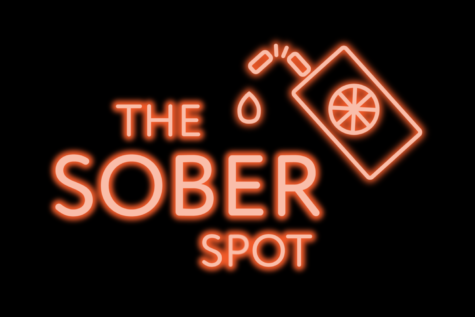OPINION | Tulane needs more sober social outlets
September 15, 2021

Whenever I tell a fellow Tulane University student about an occasional trip to Harrah’s Casino, they often smile and crack a joke about my “gambling addiction.” I usually smile back, since there is a humorous contrast between the Ramen-eating student-worker on a budget and the glittering temptations of casino slot machines.
Yet, whenever I hear someone discuss their recent trip to the Boot Bar and Grill, Bruno’s Tavern or Bourbon Street, the line, “you must be an alcoholic” is never offered as a response. This is because 86% of students drink at Tulane, and it appears students believe they cannot be addicted to something as normalized as breathing.
In 2017, the Princeton Review ranked Tulane the #1 Party School in the United States, and in 2015, a survey of Tulane students found that 54% of freshmen reported high-risk drinking, compared with 20% of freshmen at peer institutions.
It is easy for Tulane students to view the drinking culture as normal or to not recognize the hospitalization rate for intoxication among Tulane undergrads as a crisis. In the 2017-2018 school year, Tulane Emergency Medical Services received 206 calls for alcohol-related emergencies.
There are a lot of reasons students choose to drink. Students drink for fun, to unwind from the pressures of school and to make friends. However, students also drink to cope. Over 95% of college students reported negative mental health impacts from the COVID-19 pandemic. Consequently, alcohol consumption as a coping mechanism for anxiety and depression also increased among college students over the past year.
On the other hand, there are a plethora of reasons a student may elect to stay sober. Students may not drink due to a medical condition, religious reasons or personal life choices. Regardless of reason, the social landscape of Tulane does not cater to students who choose sobriety.
Most of the major student organizations at Tulane, from Greek life to student government to pre-professional clubs, tend to organize social events around drinking. Additionally, there are few to no options for strictly sober activities. Tulane After Dark organizes events like mini golfing, movie screenings and even “Bob Ross painting nights.” These events are fun and fairly regularly attended. However, they can appear cheesy or trite contrasted with the more exclusive, popular or private events of other student organizations.
Tulane After Dark events are an aid but not a solution to the issue: they are an administrative response to drinking culture, not student-led initiatives with a purpose entirely separate from drinking culture.
Perhaps the university and students alike need to get more creative. Few students join religious groups as a social outlet, but many of these organizations, like Reformed University Fellowship and the Muslim Students Association, offer the kind of sober safe space lacking elsewhere at Tulane. That being said, it is understandable that not all students want to join a religious group to meet friends in a sober context.
Of course, navigating party culture is not unique to Tulane. Keg-laden parties and games of beer pong are quintessential to the American college experience. However, not all party colleges are complemented by a party city. Rightly so, Tulane reflects the city it is housed in, and what city is more celebratory than New Orleans?
Drinking is a natural component of such a notoriously festive city. Even the unofficial mantra of the city echoes the ubiquity of alcohol: “laissez bon temps rouler … let the good times roll.” However, the Big Easy’s celebratory culture should not be synonymous with a TEMS ride to the hospital for intoxication.
There is a gray area between healthy drinking and unhealthy drinking wherein students choose to drink not because they actually want to consume alcohol, but because alcohol often functions as a social connector. These decisions seem insignificant in the moment but may have impacts for years to come. After all, many are familiar with this post-graduation joke: “What do you call a Tulane student after they graduate?” Answer: “an alcoholic.”
Tulane should prioritize filling this gray area with more sober social outlets, so students have more avenues to make friends, especially during freshman year. Further, prominent clubs should prioritize holding non-drinking events which would provide students with more agency over how they socialize. As a result, the stigmatization of sobriety would decrease, and students would not experience fear of missing out from not participating in a wine night or a beer pong game. These changes are especially important amidst the lingering pandemic world of heightened uncertainty and anxiety.
The Tulane community should consider the following questions: how can students improve the drinking culture of the clubs in which they are already members? How can administrators decrease alcohol consumption as a social outlet and make sobriety an easier social choice? The answers are neither simple nor easy, but merely considering these questions and their importance is a good place for anyone to start.









Marilee Eaves • Sep 16, 2021 at 9:20 am
So grateful to read this article – inserting new options for being socially accepted and sober sounds like good news to me